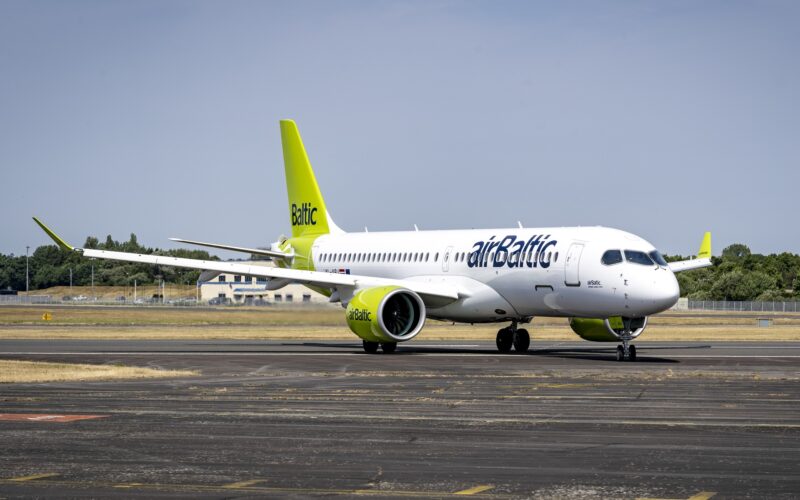A row has erupted between the Latvian government and the country’s largest airline, airBaltic.
It follows the recent disclosure that airBaltic has been forced to cancel 4,670 flights for its 2025 summer season, due to maintenance issues affecting the Pratt & Whitney engines that power the airline’s A220 fleet.
For many months, Pratt & Whitney’s GTF engines have been plagued by technical problems arising from the discovery of material impurities in some engine parts. This long-recognized issue has forced dozens of airlines worldwide to ground aircraft in order to undergo inspections, leading to capacity reductions and operational issues.
airBaltic, which operates a single-type all-A220 fleet, has been particularly affected by this ongoing issue. As a result, the airline has announced that it is to drop 19 routes and reduce frequencies on 21 others during the forthcoming 2025 summer season.
This move has been badly received by the Latvian government, which is a majority shareholder of the airline.
On January 3, 2025, Latvia’s Economics Minister Viktors Valainis called for the resignation of airBaltic’s CEO Martin Gauss, alleging that the Latvian government had lost confidence in the carrier’s top management. The minister was also critical of the decision by airBaltic to lease out part of its fleet to the Lufthansa Group through a wet-lease arrangement just as the carrier faced a capacity crunch in its home market.
These criticisms have since been echoed by other prominent politicians in Latvia, as well as by members of the country’s government such as Transport Minister Kaspars Briskens, who has requested an explanation of the current wave of flight cancellations from airBaltic’s supervisory board.
AirBaltic’s CEO, Martin Gauss, has hit back at these accusations in turn, defending his track record at the helm of the airline and noting that the GTF engine issues are global in nature and therefore beyond the control of airline. Gauss also accused critics in the government of harming the airline and defended the wet-lease policy on the grounds that it helps to drive airBaltic’s profitability.
AirBaltic went through a complicated financial situation during the COVID pandemic, though it managed to pull through and post a €34 million profit in 2023, while securing additional financial instruments to face its short-term financial obligations. Critics of the airline’s management have pointed out that the latest bonds secured by airBaltic carry a very high interest cost. However, Gauss dismissed these allegations during an interview with AeroTime during IATA’s AGM in June 2024, pointing out that the latest bonds were oversubscribed, at an interest rate that was not particularly high when viewed within a global context.
Besides the technical and operational issues it now faces, the Riga-based airline is expected to complete two flagship projects this 2025: the launch of free Starlink connectivity across its entire fleet and its long-awaited IPO. As of early January 2025, it is not clear how the ongoing political dispute will affect these plans.
In this regard, the Chairman of airBaltic’s Supervisory Board, Klavs Vasks, indicated in a Linkedin post (in Latvian language), that additional capital would be necessary to secure the long-term future of the airline and secure a healthier capital structure with lower financial costs.
In his post, Vasks said that airBaltic’s talks with external parties (which could be interpreted as a not-too-veiled reference to rumored talks with the Lufthansa Group, which is said to be interested in an equity stake) have not gone as smoothly as hoped.
airBaltic, however, reached out to AeroTime highlighting that “negotiations with the pre-IPO strategic investor in airBaltic are ongoing and at an advanced stage. Preparations for a potential IPO are also in progress with the earliest possible timing of the listing in 2025, and when the market conditions are right.”
Vasks also reiterated his confidence in the current business model and the feasibility of the IPO. However, he called for cooperation between all stakeholders to make this possible, given the importance of airBaltic to the Latvian economy.

